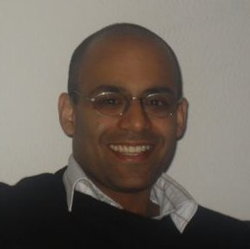Amit Dubey

Amit Dubey

Amit Dubey is a Computational Linguist who conducts research in Artificial Intelligence with a specialization in Computational linguistics, Computational linguistics, and Human Cognition. He works as a Search Quality Engineer at Google and uses Natural Language Processing to improve search quality. [-1]
Career
From 2009-2012 Amit worked as a Research Fellow at the University of Edinburgh. He was a Principal Investigator on 3-year ESRC-funded grant on syntax /semantic interactions in human language understanding. Research spanned Computational models and experimental Psycholinguistics. [-1]
From October 2009-February 2009 Dubey worked as a Visiting Professor, teaching graduate-level courses and advising Master's theses at the University of Stuttgart. [-1]
From January-October 2008 Dubey worked as a Postdoctoral Research Assistant. He was an experimental psychologist investigating theories of eye-movement control while reading at the University of Dundee. [-1]
From November 2004-January 2008 Amit was a Research fellow at the University of Edinburgh. He worked as experimental psychologist and computational psycholinguist on a 3-year grant investigating how people process repeated syntactic structures. Research led to publications in world-class journals including Cognition (journal) and the Journal of Experimental Psychology. [-1]
From May-July 1998 he was a Research assistant at the University of Waterloo and developed an interface between research-grade CAM software and traditional CAD tools. [-1]
Since August till December, 1997 Amit worked as a Consultant on Y2K conversion project at multi-billion dollar power utility at Lanco Global Systems. [-1]
Articles
- Saeideh Ghahghaei, Karina Linnell, Martin Fischer, Amit Dubey and Robert Davis. 2011.
Effects of load on the timecourse of attentional engagement, disengagement and orienting in reading.
To appear in The Quarterly Journal of Experimental Psychology. [2]
- Patrick Sturt, Frank Keller and Amit Dubey. 2010.
Syntactic priming in comprehension: Parallelism effects with and without co-ordination.
Journal of Memory and Language, 62:4, 333-351. [2]
- Amit Dubey, Frank Keller and Patrick Sturt. 2009.
A Probabilistic Corpus-Based Model of Parallelism.
Cognition, 109:2, 193-210. [2]
Papers
- Xin Yan, Sabina Jeschke, Amit Dubey, Marc Wilke and Hinrich Schütze.
RENS - Enabling a Robot to Identify a Person.
In ICIRA 2009: 43-54.
- Beatrice Alex, Amit Dubey and Frank Keller. 2007.
Using Foreign Inclusion Detection to Improve Parsing Performance.
EMNLP 2007, Prague, Czech Republic.
- Amit Dubey. 2005. What to do when lexicalization fails: parsing German with suffix analysis and smoothing. In 43rd Annual Meeting of the Association for Computational Linguistics, Ann Arbor, MI, United States. [2]
**Theses **
- Amit Dubey. September, 2000. Tuning Probabilistic Parsers on Plain Text.
MMath thesis, University of Waterloo, Canada. [2]
Invited Talks
- The Influence of Discourse on Syntax: A Probabilistic-logic Based Model of Sentence Processing, Cornell University, November, 2010. [2]
- The Influence of Discourse on Human Syntactic Ambiguity Resolution, IIT Kanpur, November, 2009. [2]
- The Influence of Discourse Information on Ambiguity Resolution, Saarland University, January, 2009. [2]
- Probing Attention During Reading, September, 2008, LRDC, University of Pittsburgh [2]
- A Probabilistic Corpus-Based Model of Syntactic Parallelism, May, 2007, EuroCogSci 2007 Symposium on Computational Psycholinguistics
ACT-R, and its Application to Sentence Processing, November, 2006, Computational Linguistics and Formal Grammar Group, King's College London, University of London [2]
- Recent Directions in Probabilistic Parsing, October 2003, University of Sheffield [2]
- Two Studies in Probabilistic Parsing, June 2003, Institute for Logic, Language and Computation, University of Amsterdam. [2]
Education
In 2001, he graduated from the University of Waterloo with a Master of Mathematics in Computer science. [-1]Amit graduated in 1999 from the University of Waterloo with a Bachelor of Mathematics in Computer science. There he also took part in the activities of the Debate Society and Mathematics Society. [-1]